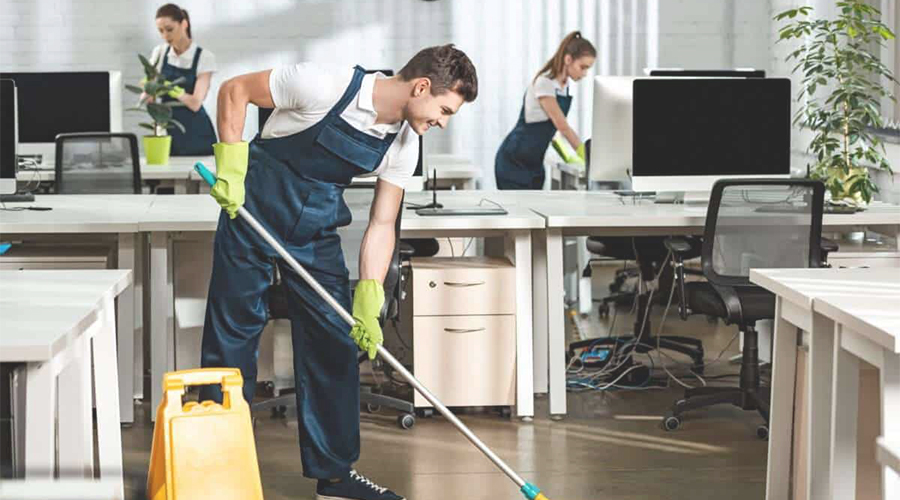
The decision to engage professional office cleaning services represents more than a simple expenditure on workplace maintenance. It constitutes, rather, a calculated investment in organisational health, employee productivity, and corporate reputation. In Singapore’s competitive business landscape, where first impressions carry substantial weight and regulatory compliance demands precision, the quality of one’s office environment speaks volumes before a single word of business is exchanged.
The Regulatory Framework That Shapes Standards
Singapore’s approach to commercial cleanliness reflects the nation’s characteristic thoroughness in matters of public health. The National Environment Agency established official guidelines designed, in their own words, “to raise standards, productivity and professionalism” within the cleaning industry. These are not mere suggestions but regulatory requirements backed by enforcement mechanisms that prudent business operators ignore at their peril.
The mandatory licensing regime introduced in 2014 fundamentally altered the professional cleaning landscape. Companies providing professional office cleaning services must now demonstrate compliance with Workplace Safety and Health regulations alongside Environmental Public Health requirements. According to industry sources, “businesses involved in office and commercial cleaning are mandated to obtain a cleaning business licence” to operate legally. This licensing framework ensures accountability for quality, hygiene, and safety standards.
The Progressive Wage Model further reinforced these standards by establishing clear pathways for cleaner training and compensation, ensuring that the individuals maintaining Singapore’s office spaces possess both proper qualifications and fair treatment.
The Economics of Cleanliness
Consider the mathematics of workplace hygiene. The Singapore Facility Management Benchmark 2024 revealed that organisations maintaining daily cleaning contracts achieve cost savings of 15 to 25 percent annually compared to those engaging services on an ad-hoc basis. This differential arises not merely from negotiated rates but from the preventive nature of consistent maintenance.
Regular office cleaning services forestall the need for expensive remedial deep cleaning by addressing accumulation before it becomes entrenched. Carpet fibres maintained properly last longer. Air conditioning systems freed from dust operate more efficiently. The cumulative effect on operational budgets proves substantial over time.
For larger Singapore offices spanning 3,000 to 10,000 square feet, monthly costs typically range from $1,000 to $2,000 depending upon frequency and specific requirements. Measured against the alternative consequences of neglect, including equipment replacement, employee health costs, and reputational damage, the investment appears remarkably modest.
The Health Imperative in Tropical Conditions
Singapore’s humid tropical climate creates ideal conditions for microbial proliferation. Professional office cleaning services address this environmental reality through systematic approaches that casual maintenance cannot match:
- Regular sanitisation of high-touch surfaces including door handles, lift buttons, telephones, and keyboards using NEA-approved disinfectants
- Thorough disinfection protocols that reduce workplace illness transmission and consequent productivity losses from employee absence
- Proper ventilation system maintenance that improves indoor air quality, particularly crucial in sealed, air-conditioned environments
- Specialised equipment including HEPA-grade vacuum systems that capture allergens and particulates rather than redistributing them
The post-pandemic awareness of hygiene has merely intensified what sensible organisations already understood. As industry observers note, maintaining stringent sanitisation standards in Singapore offices proves essential “for preventing the spread of viruses, fostering a healthier and more productive work environment.”
The Psychology of Workplace Presentation
Human beings form impressions rapidly and revise them reluctantly. A prospective client entering an office makes judgements about organisational competence based partly upon the visual and olfactory evidence before them. Dusty surfaces, stained carpets, or malodorous washrooms suggest inattention to detail that extends, by implication, to business operations.
Conversely, consistently maintained premises communicate professionalism without uttering a word. The message conveyed proves particularly potent in industries where trust and reliability constitute essential commodities. Financial services, legal practices, medical facilities, and consulting firms understand this dynamic intimately.
Moreover, the effect extends internally. Employees working in clean, well-maintained environments demonstrate measurably higher morale and engagement. The workplace itself becomes a statement of organisational values, suggesting that if management attends carefully to the physical environment, they likely attend similarly to employee welfare and client service.
The Specialised Knowledge Factor
Commercial cleaning services bring expertise that general maintenance staff typically lack. Trained professionals understand which cleaning agents suit particular surfaces, how to remove specific types of staining without damaging materials, and which protocols best address different contamination risks.
The Environmental Public Health Act enforces workplace cleanliness standards precisely because improper cleaning practices can themselves create hazards. Using incorrect chemical combinations, failing to properly ventilate during cleaning operations, or inadequately training personnel in safe handling procedures all present genuine risks.
Licensed professional services operate under regulatory oversight that ensures compliance with safety standards. Their personnel receive training through frameworks like the NEA Environment Cleaning Workskill Qualification, guaranteeing baseline competency that ad-hoc arrangements cannot assure.
The Strategic Choice
Organisations face a fundamental question regarding office maintenance. They may task existing employees with cleaning duties, diverting time and attention from their primary responsibilities. They may engage unlicensed contractors offering suspiciously low rates. Or they may partner with established professional office cleaning services that deliver consistent quality, regulatory compliance, and peace of mind. The choice, ultimately, reveals organisational priorities and shapes daily operational reality for everyone within those office walls.
